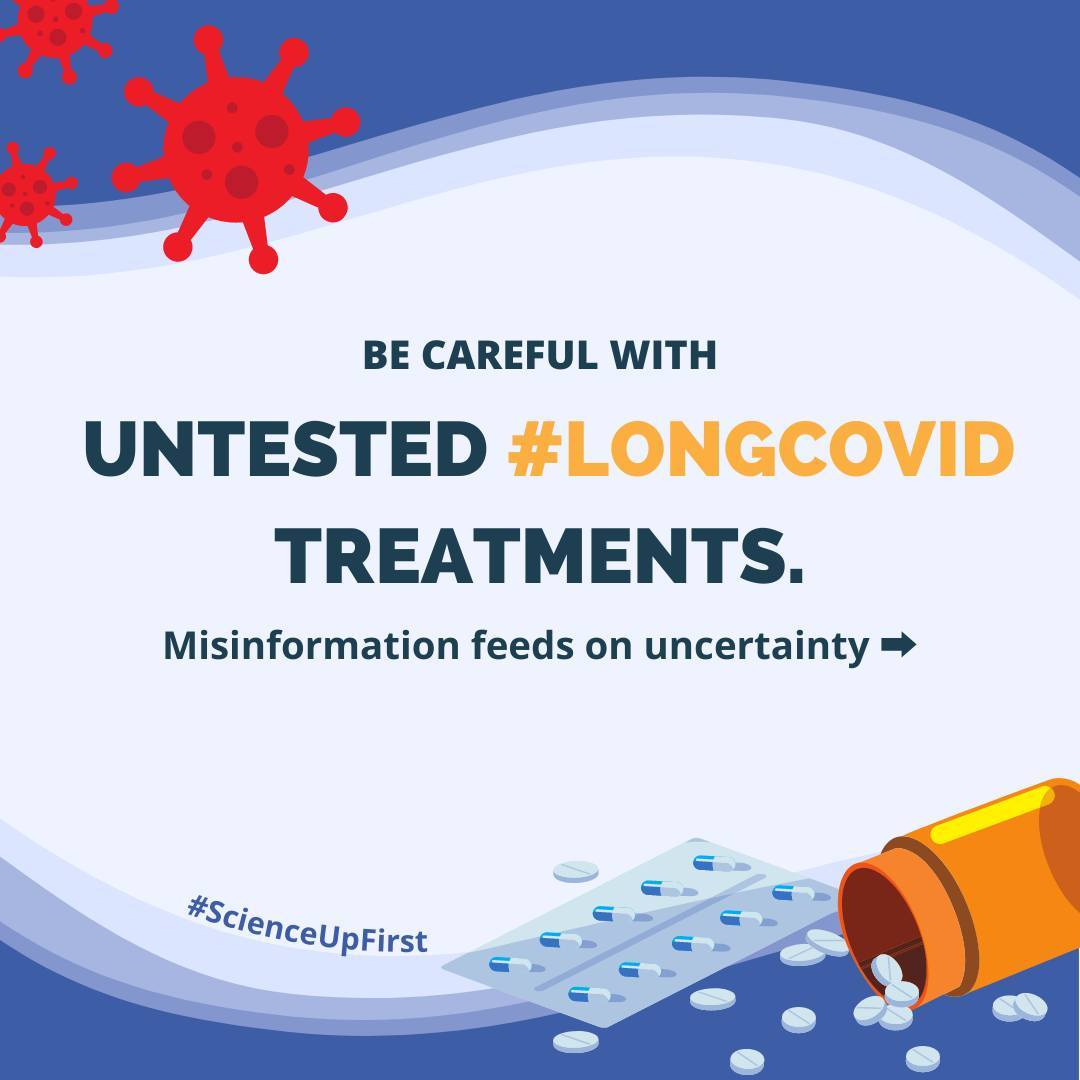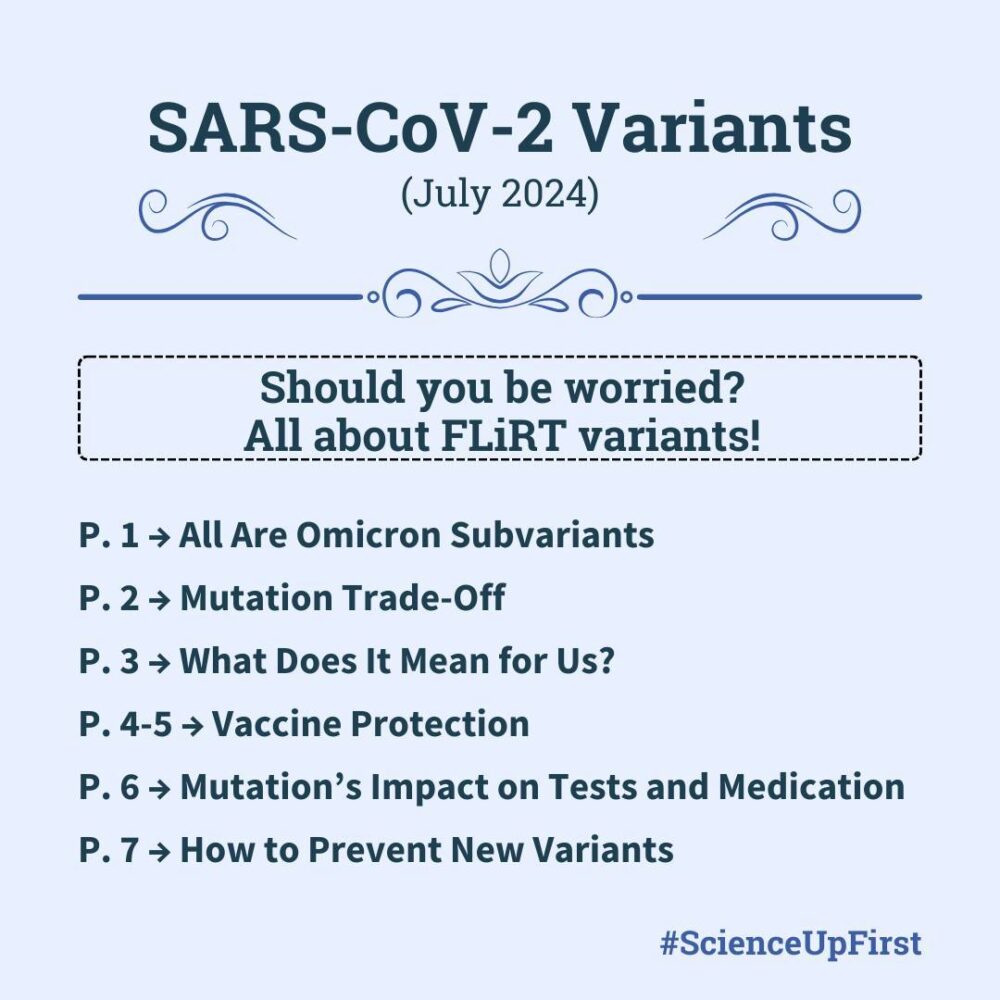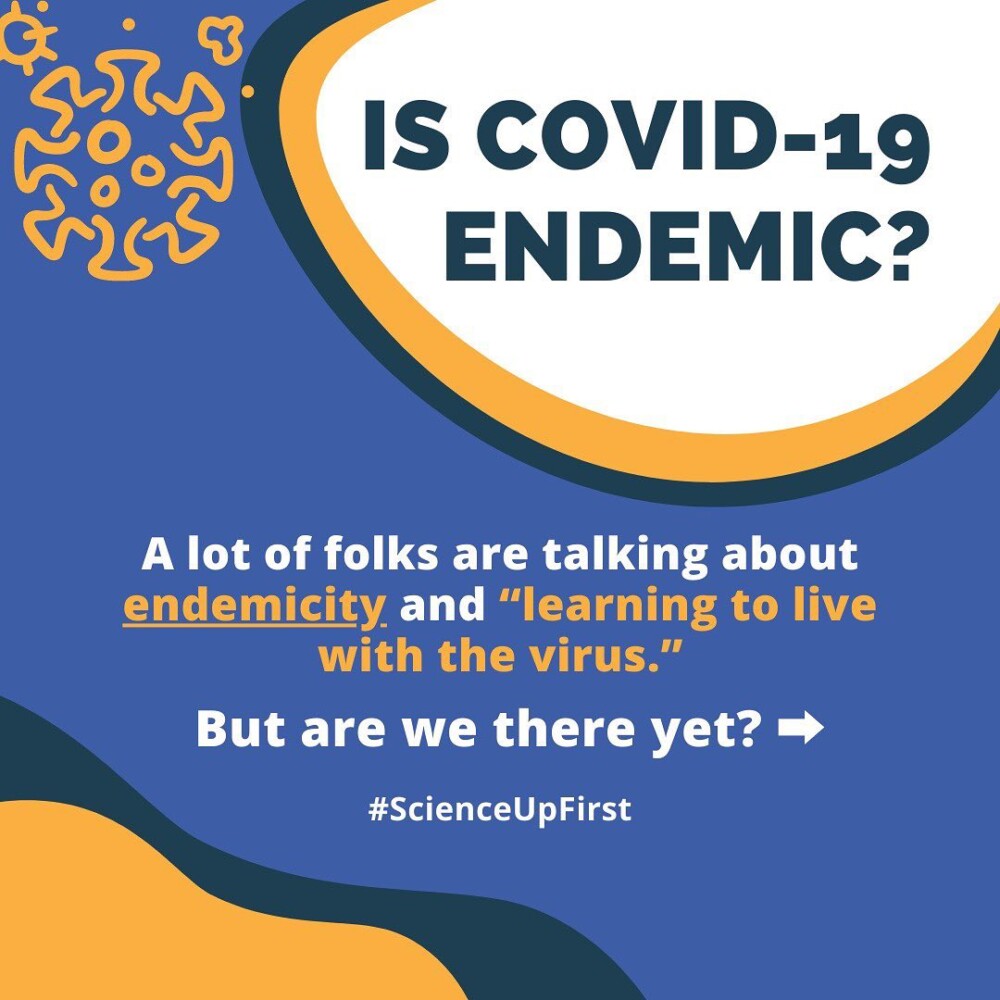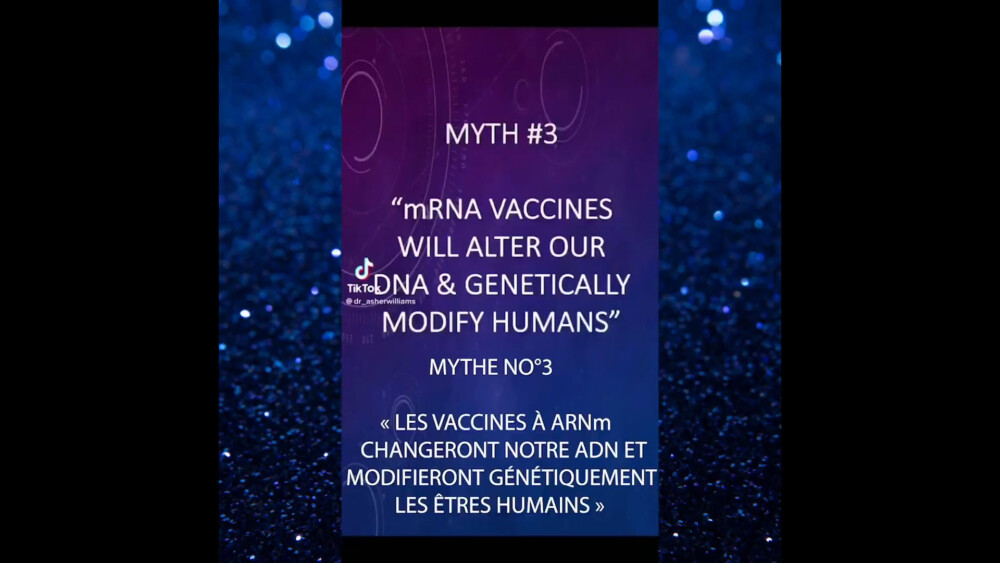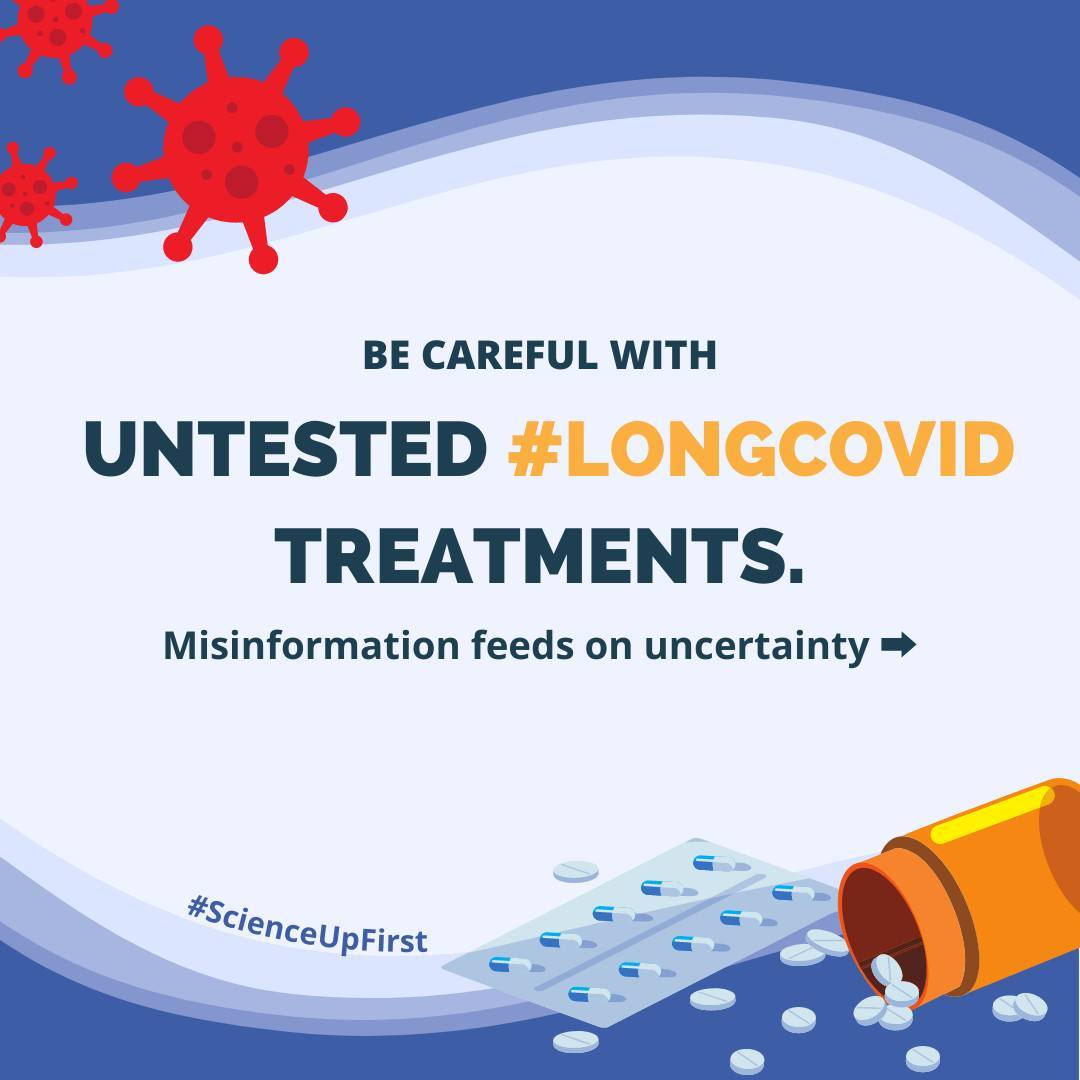
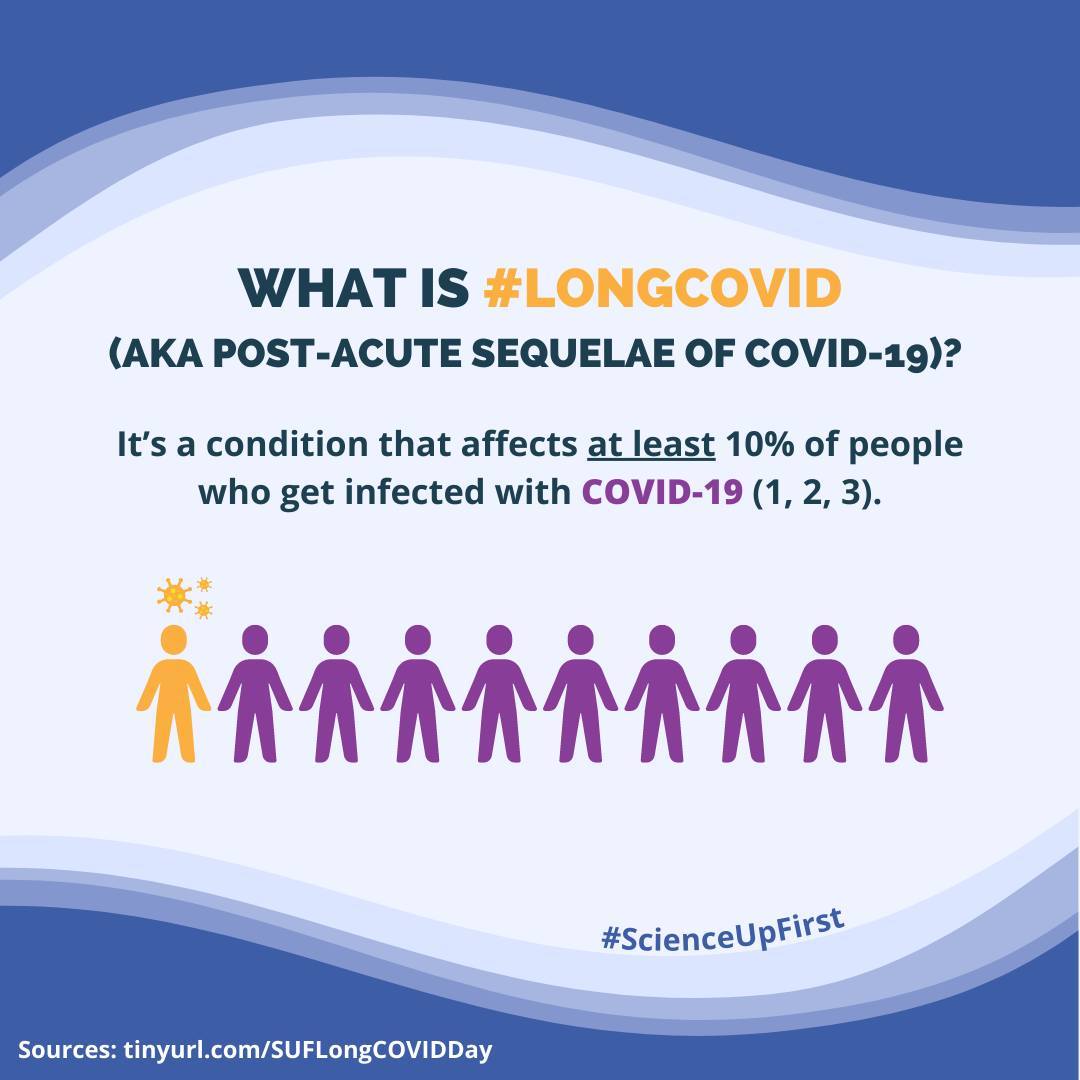
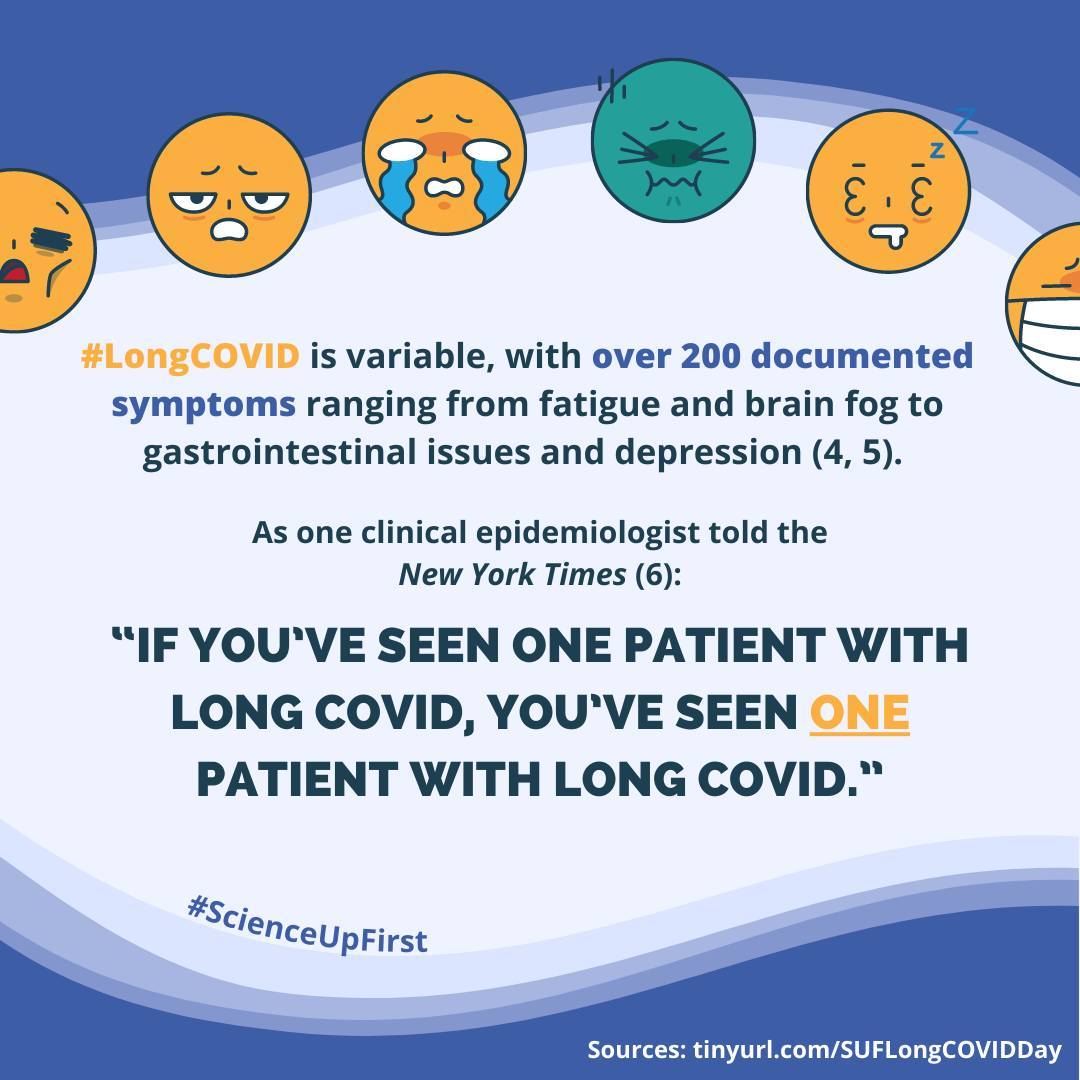
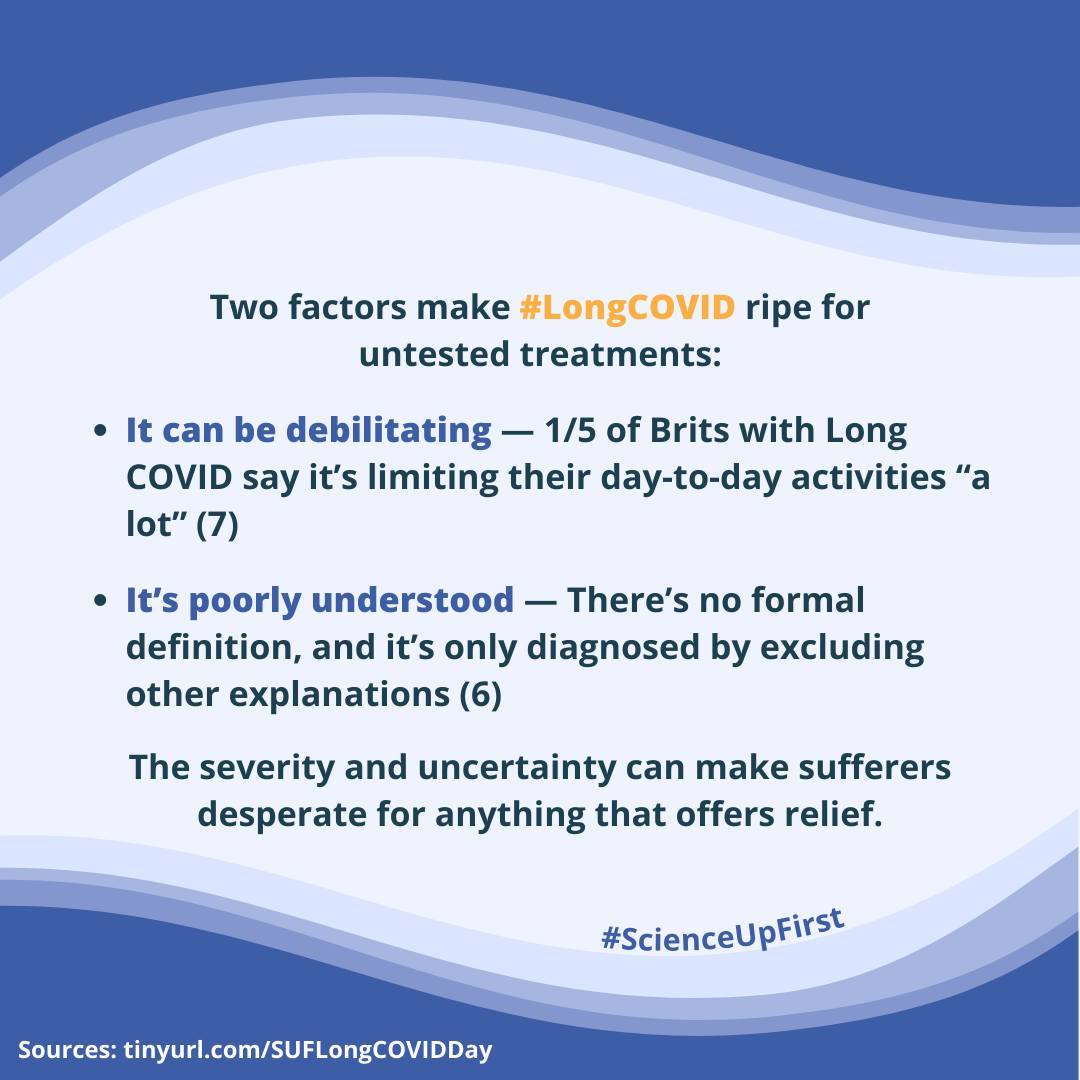
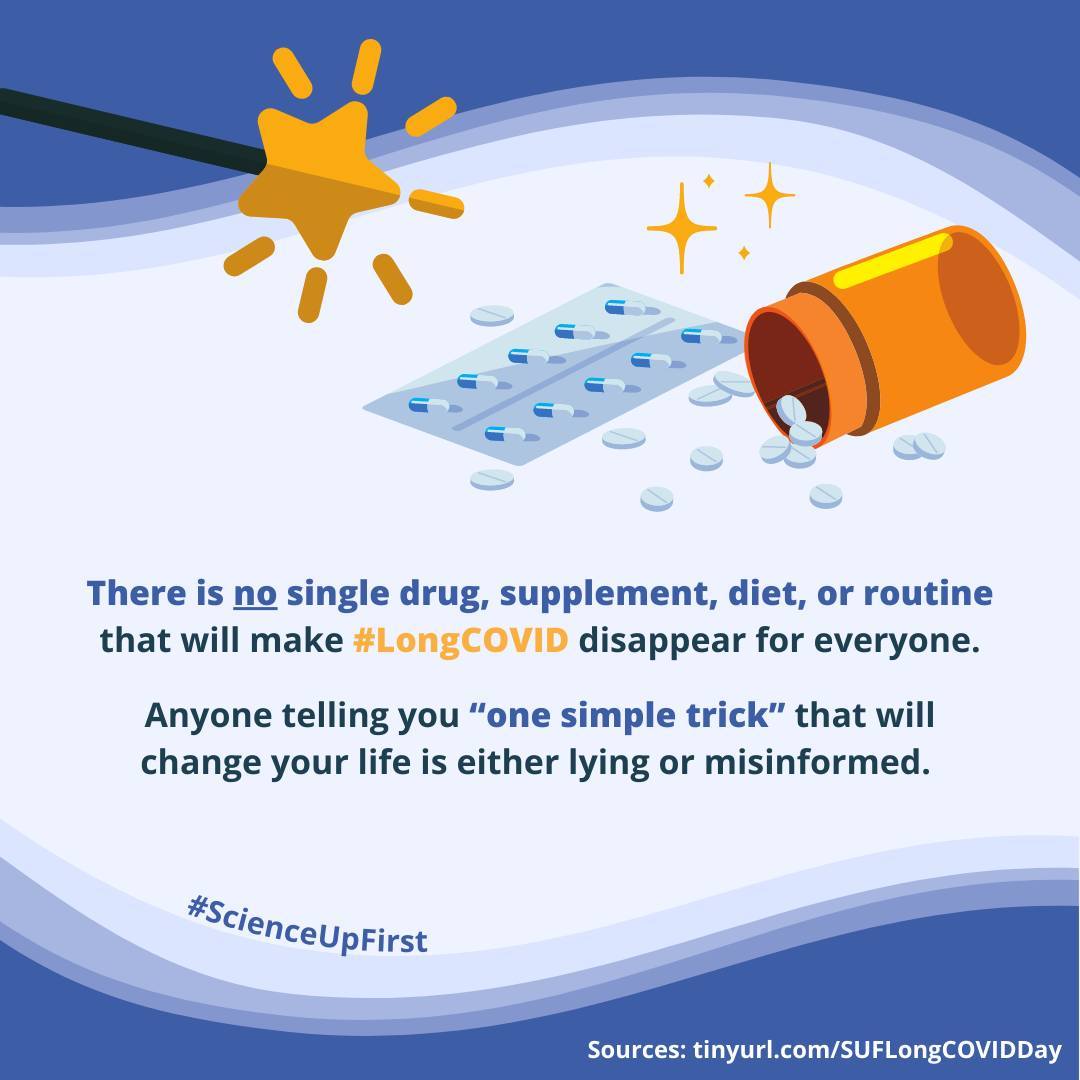
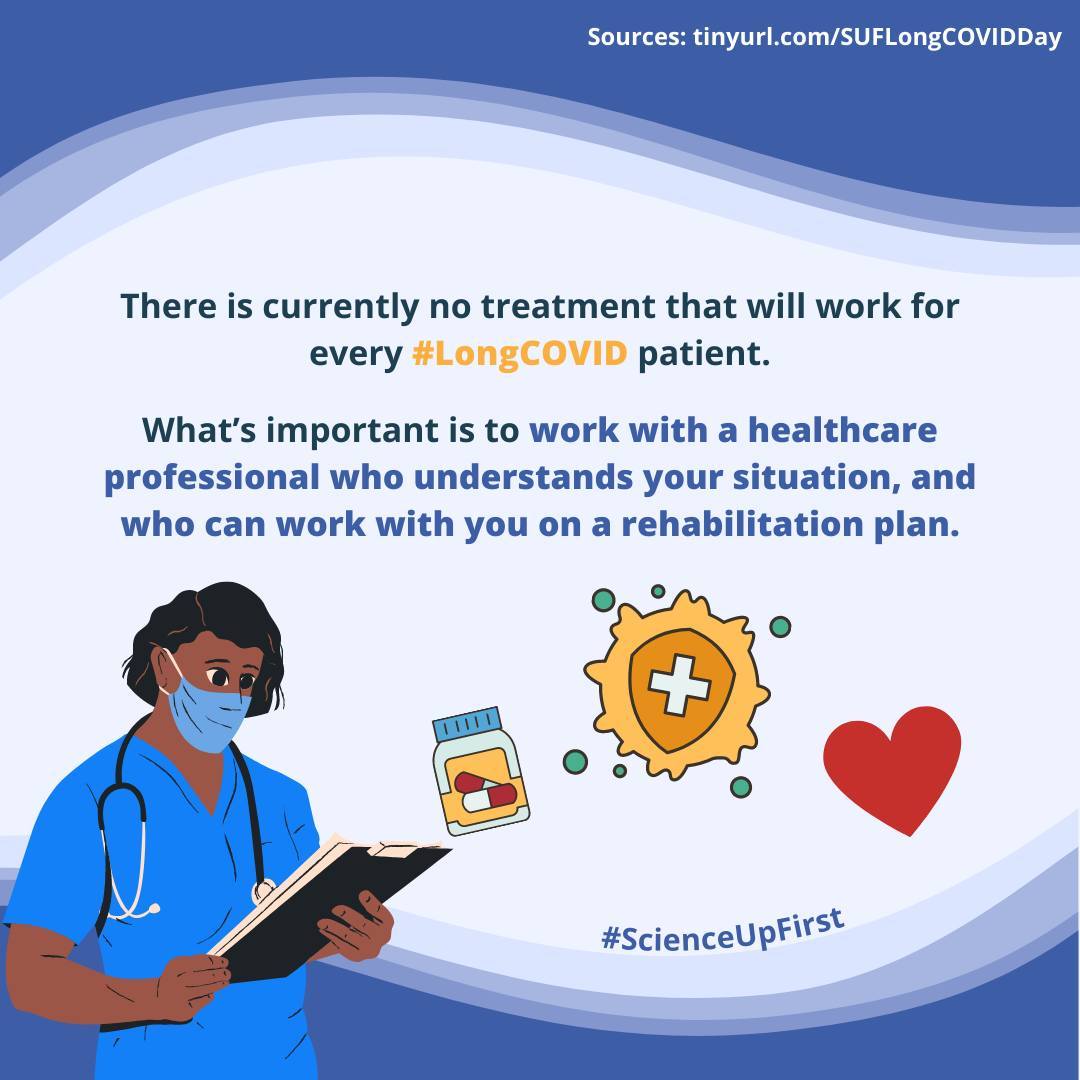
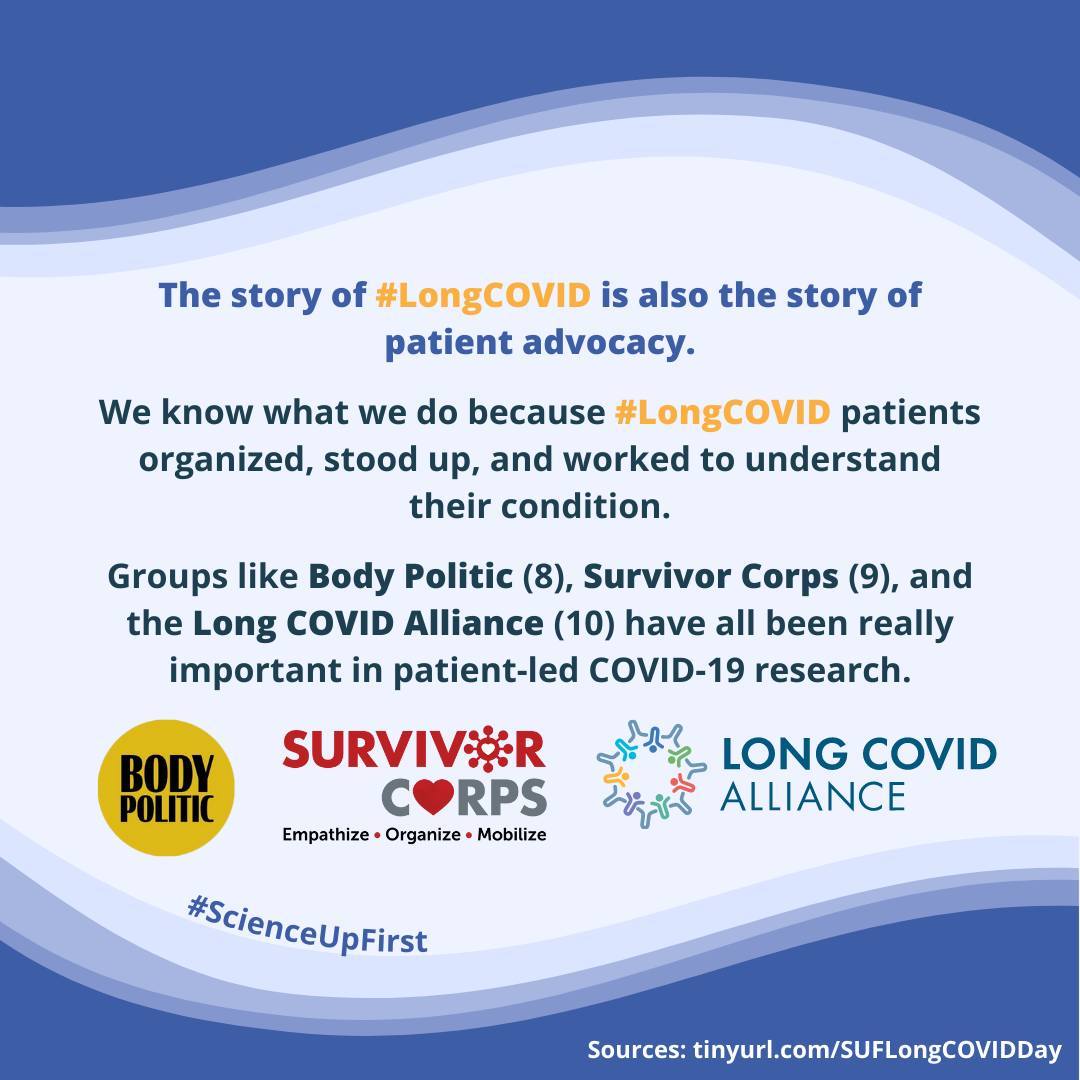
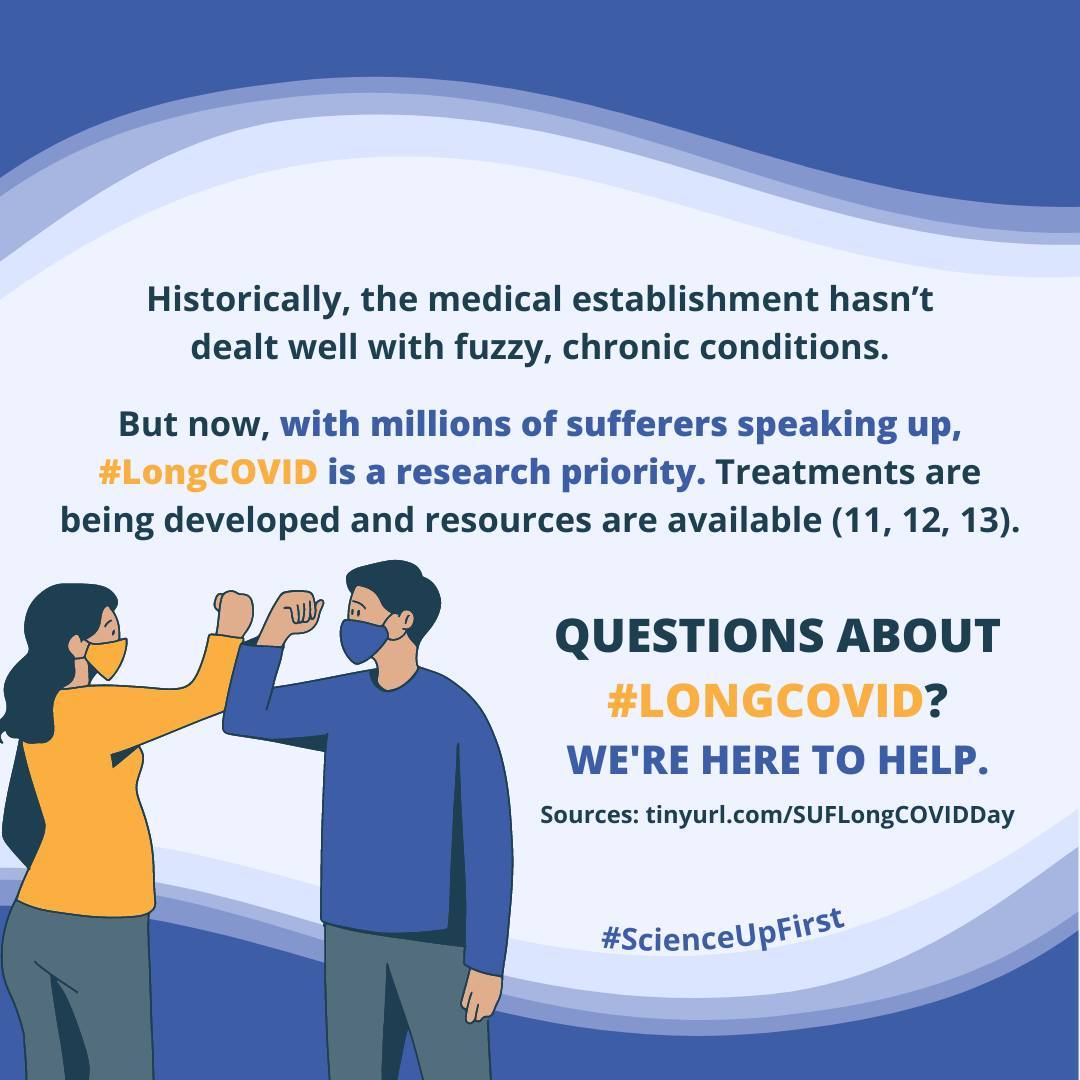
“If you’ve seen one patient with Long COVID, you’ve seen one patient with Long COVID.”
That’s what one epidemiologist told the New York Times recently.
For #LongCovidAwareness Day, we’re looking at what’s known about treatments.
Long COVID is a really variable condition, with lots of new “treatments” being touted as cure-alls.
As with anything new and uncertain, that leaves a lot of room for misinformation to thrive. So be careful what you share, and be cautious trying new and untested treatments without medical supervision.
There is some nuance here, though. And space for patient advocacy. Let’s face it: the medical establishment hasn’t historically dealt well with chronic conditions like Long COVID.
But now, with millions of sufferers speaking up, Long COVID is a research priority. Treatments are being developed and resources are available. ❤️
Share our original Tweet!
Misinformation feeds on uncertainty.
So be careful with untested #LongCOVID treatments.
A thread for #LongCOVIDAwareness Day ⬇️#ScienceUpFirst
[1/11] pic.twitter.com/QMP5Me5LfX— ScienceUpFirst | LaScienced’Abord (@ScienceUpFirst) June 9, 2022
View our original Instagram Post!
View this post on Instagram
- Post–COVID Conditions Among Adult COVID-19 Survivors Aged 18–64 and ≥65 Years — United States, March 2020–November 2021 | MMWR
- Covid-19: Vaccinated people are less likely to get long covid, review finds | The BMJ
- Understanding the Post COVID-19 Condition (Long COVID) and the Expected Burden for Ontario
- Post-COVID-19 condition – Canada.ca
- Characterizing long COVID in an international cohort: 7 months of symptoms and their impact
- Long Covid Symptoms and Treatment: What We Know So Far – The New York Times
- Prevalence of ongoing symptoms following coronavirus (COVID-19) infection in the UK : 6 January 2022
- Body Politic
- Survivor Corps
- Long-COVID Alliance
- RECOVER COVID
- Can drugs reduce the risk of long COVID? What scientists know so far
- Resources: for patients

